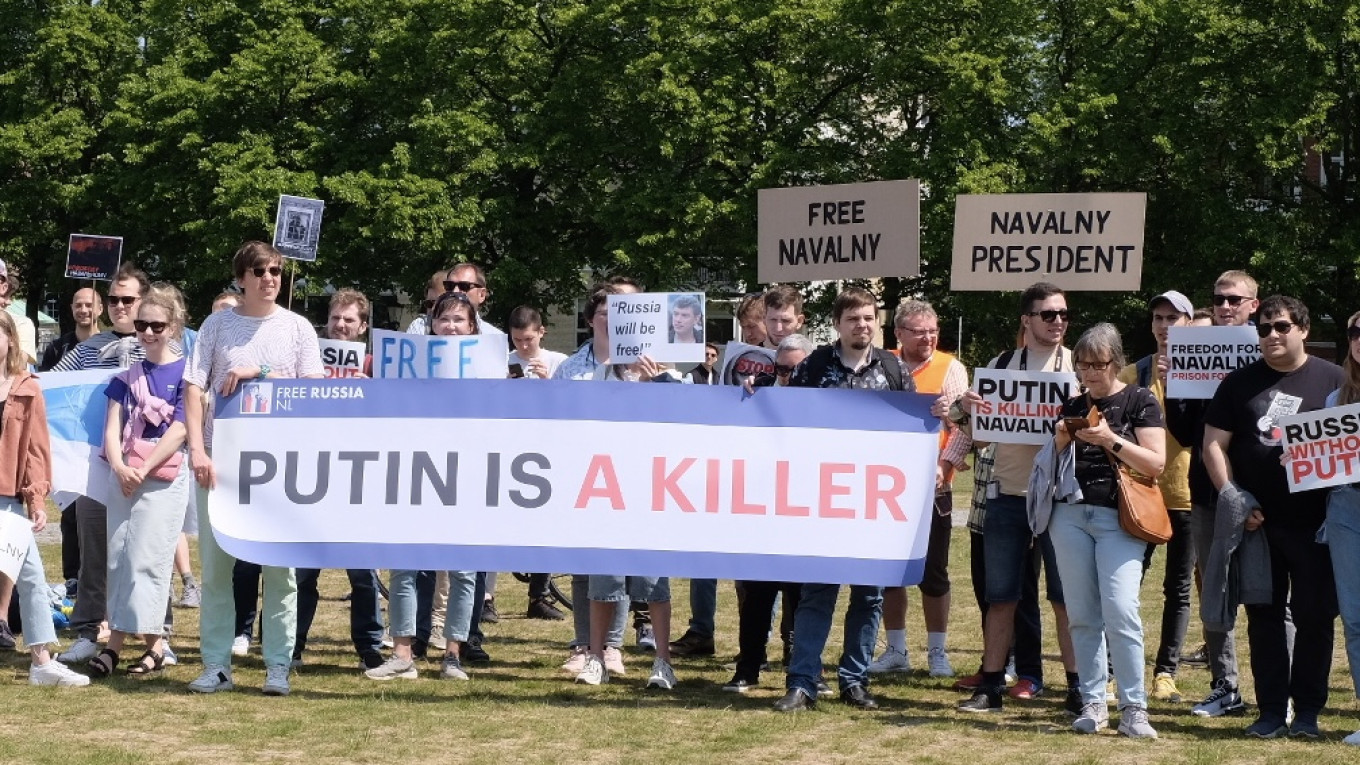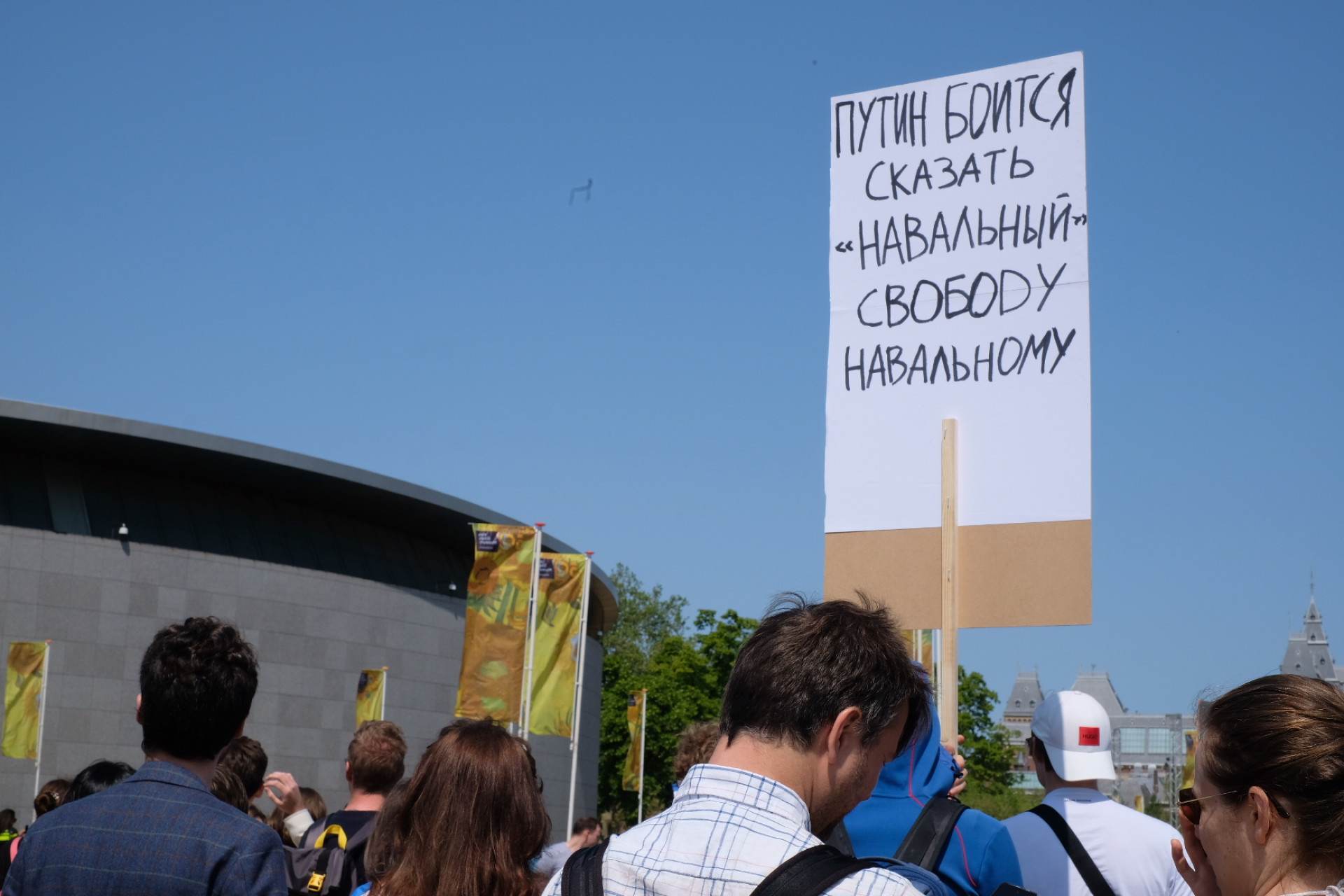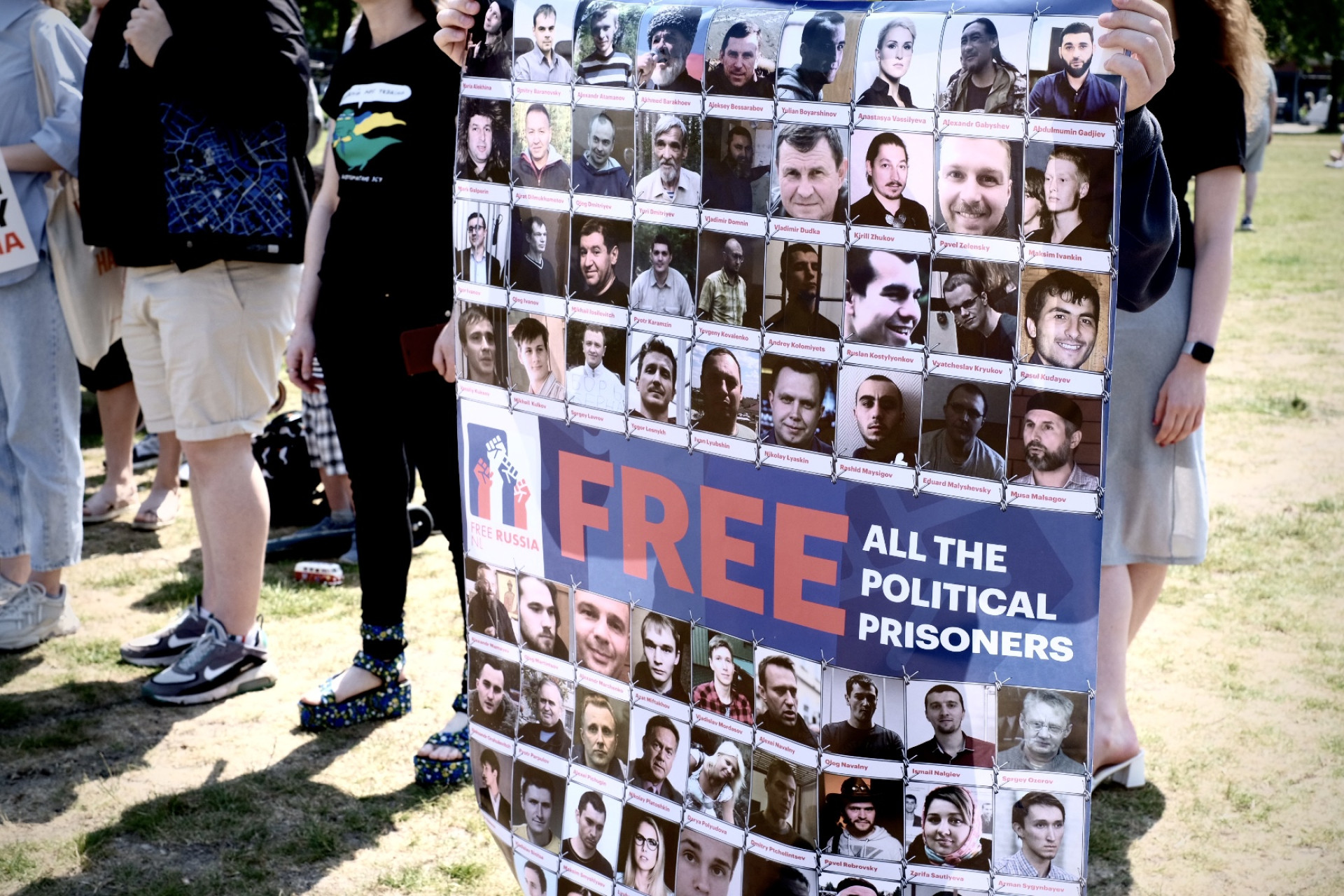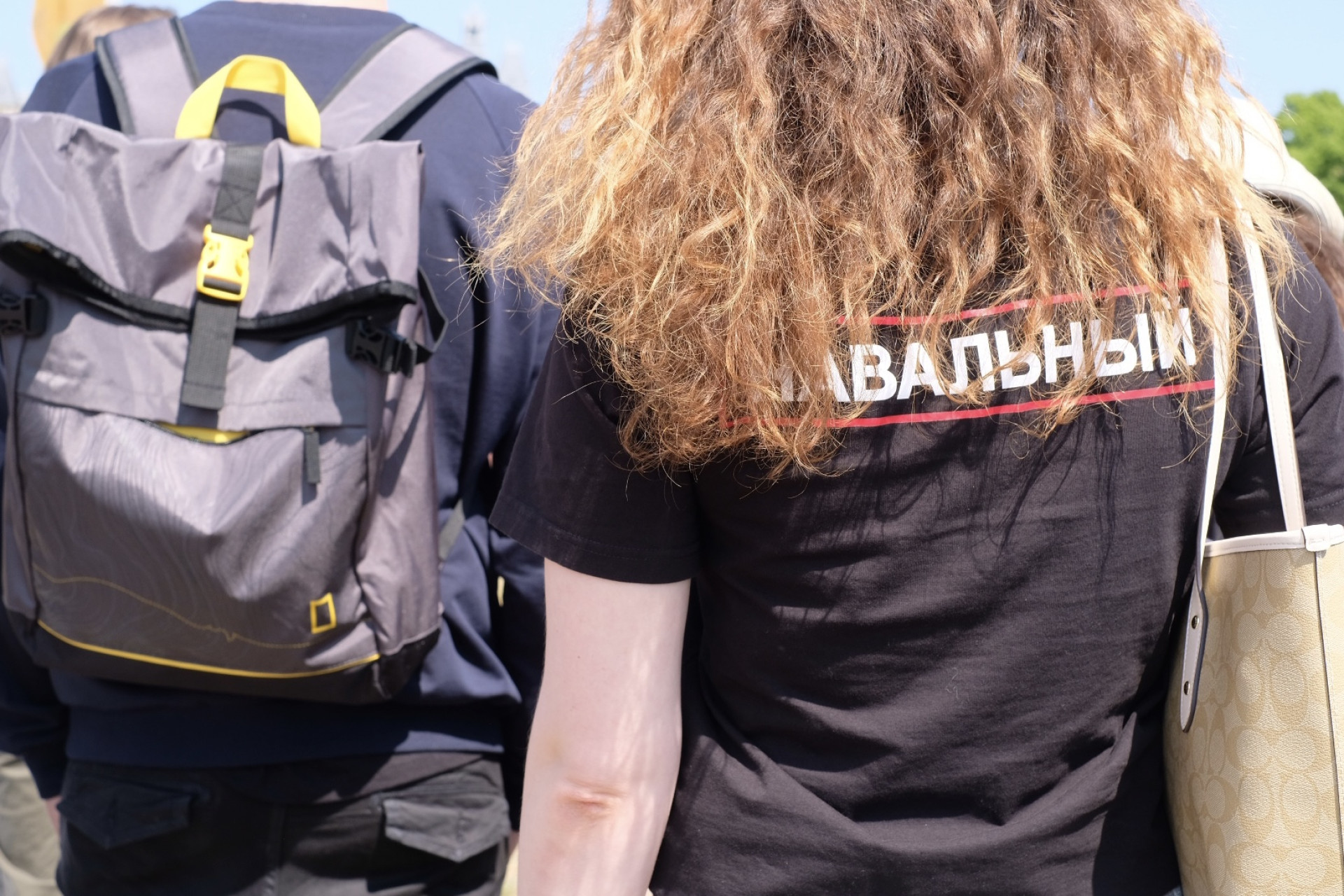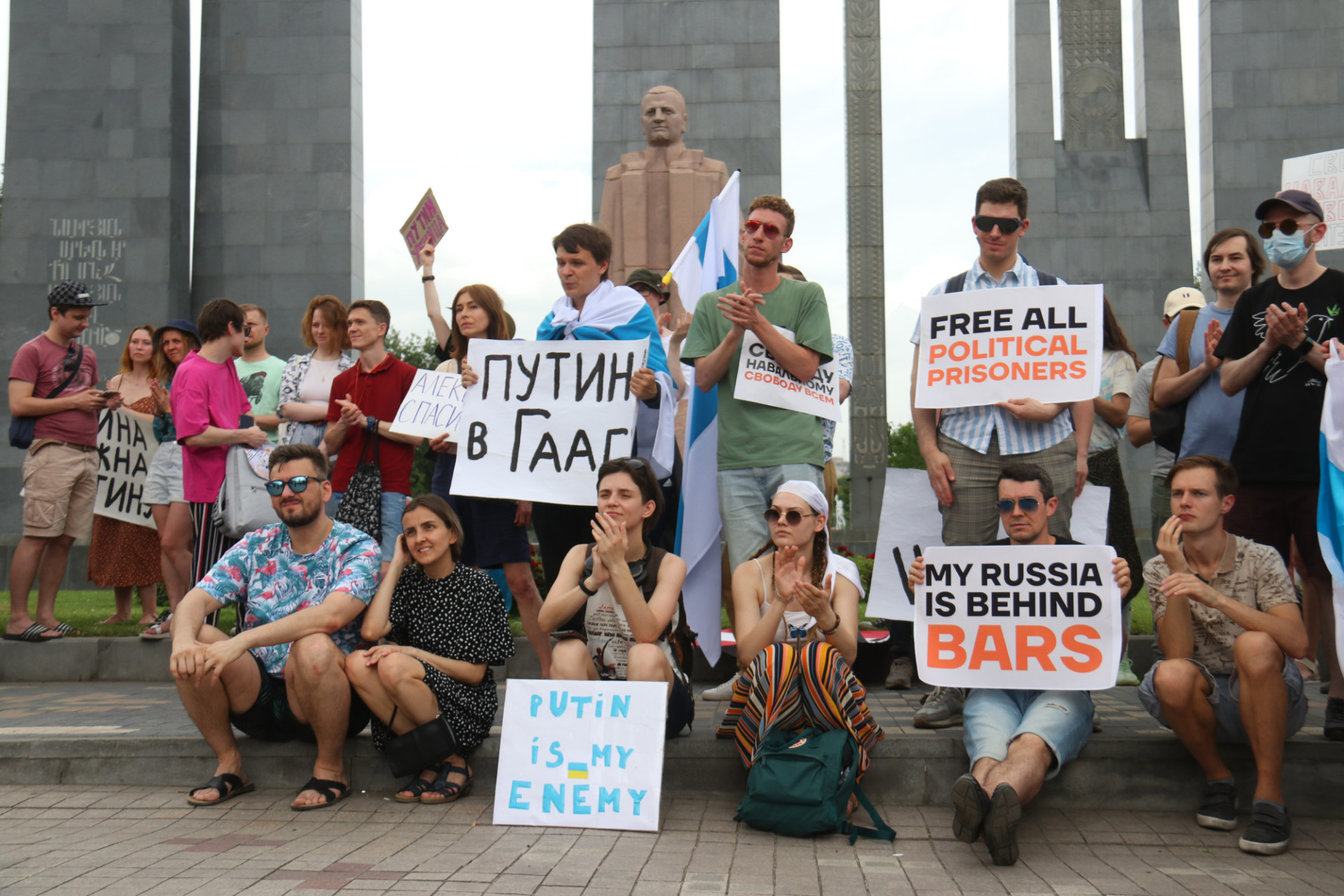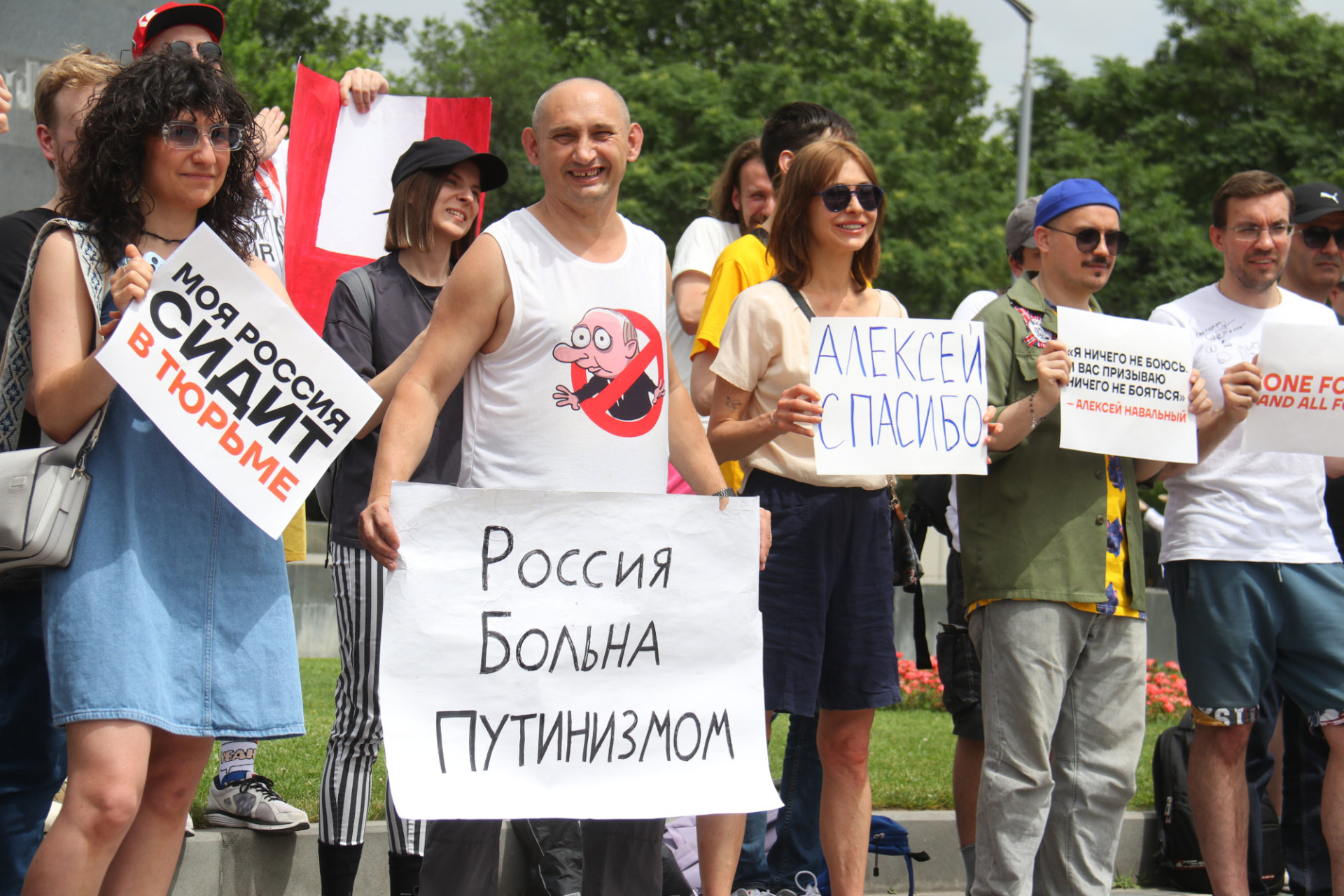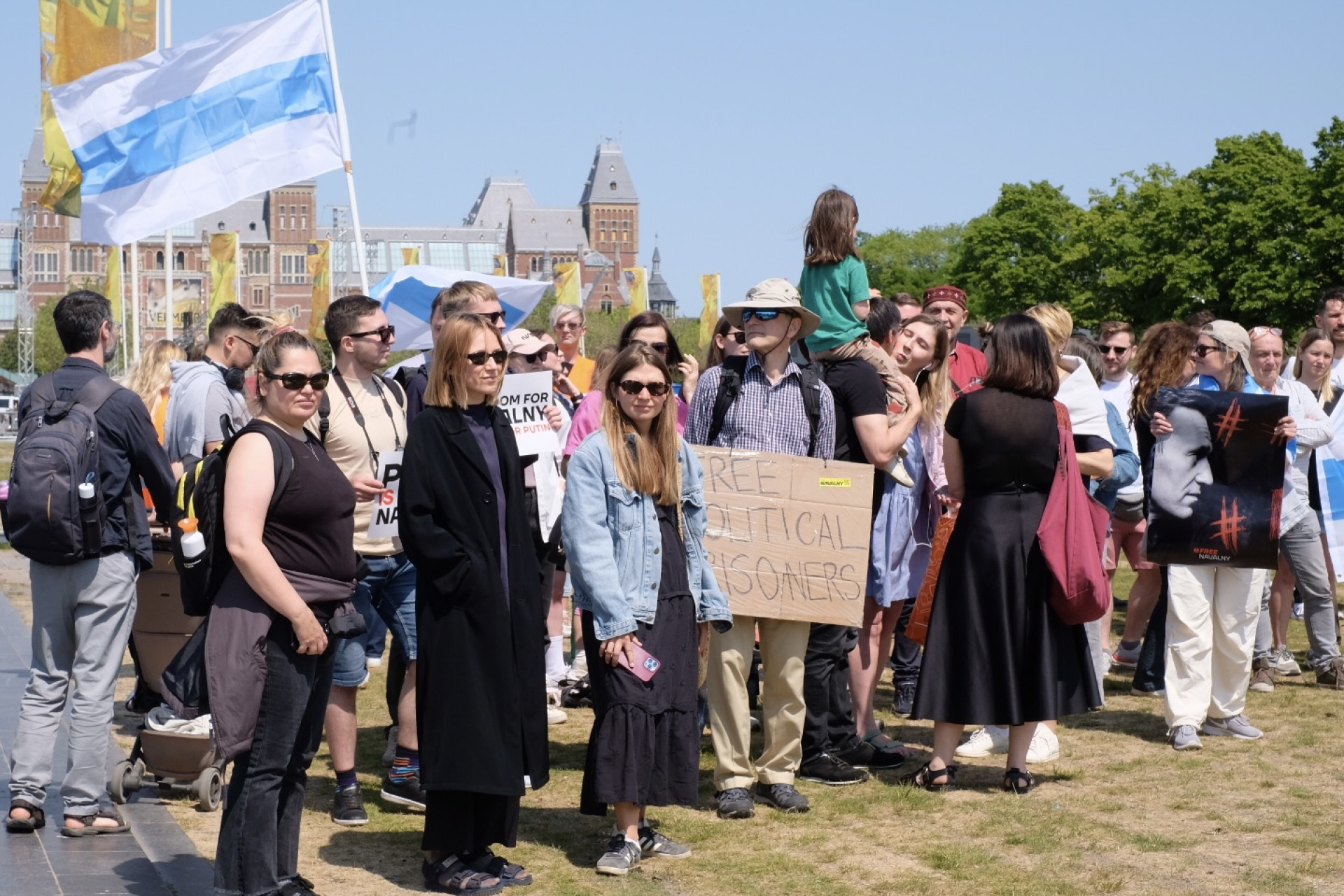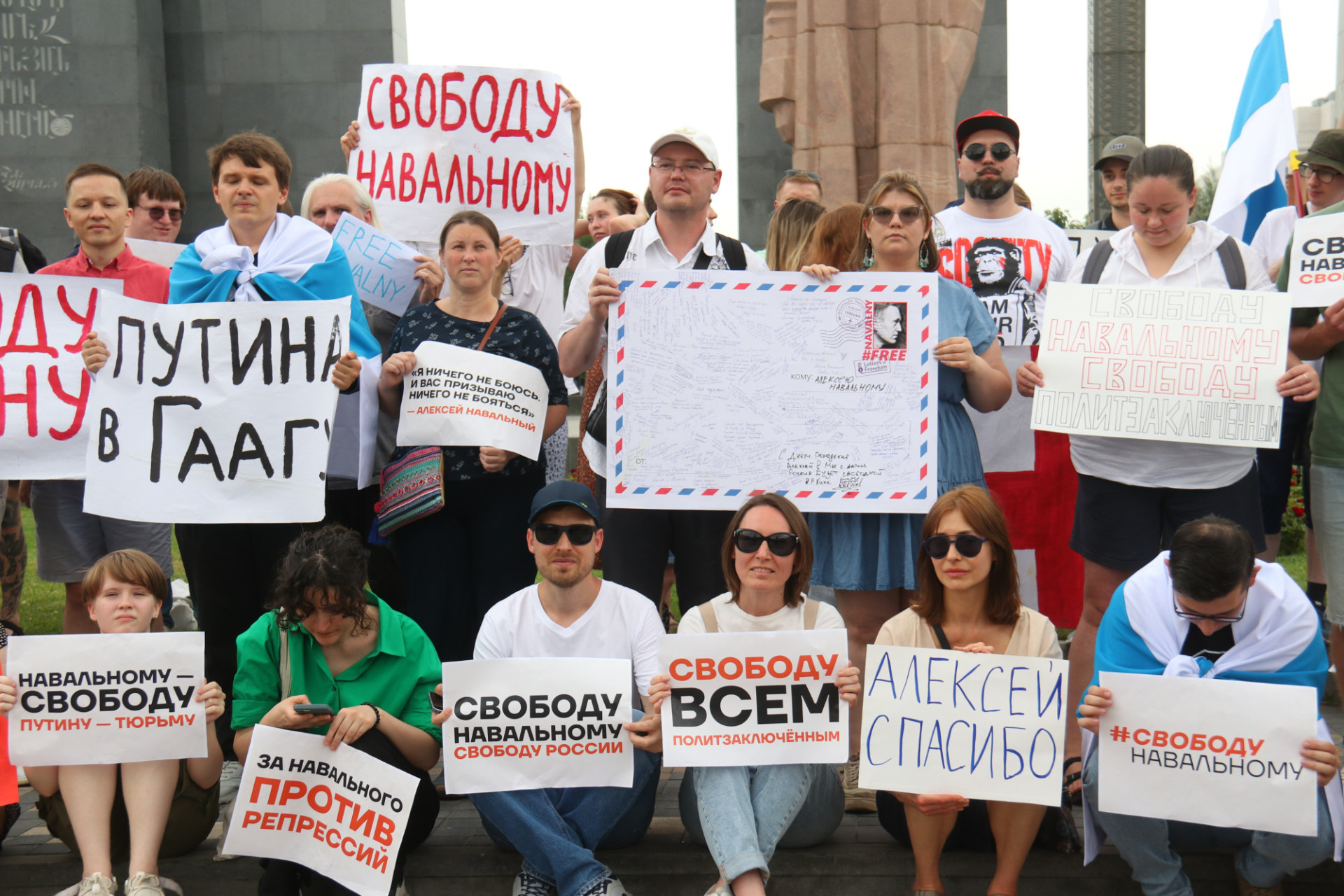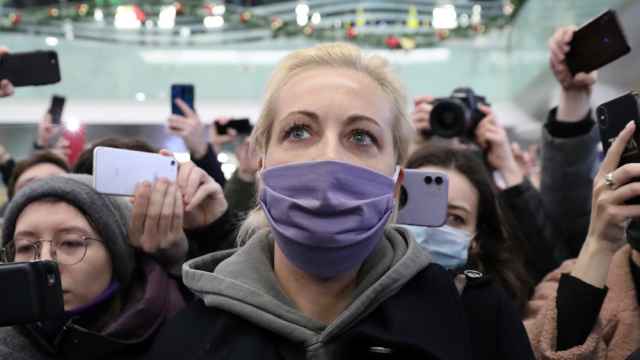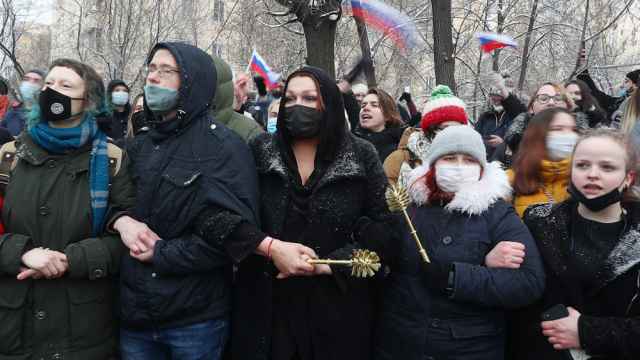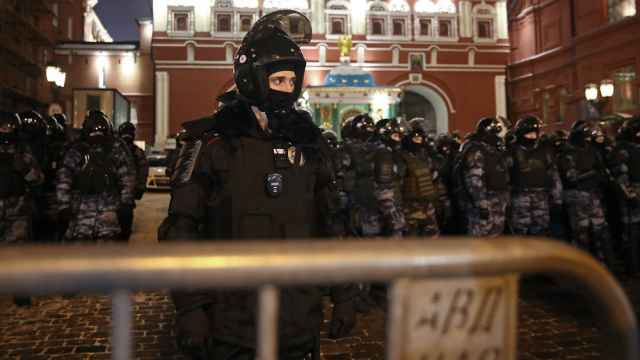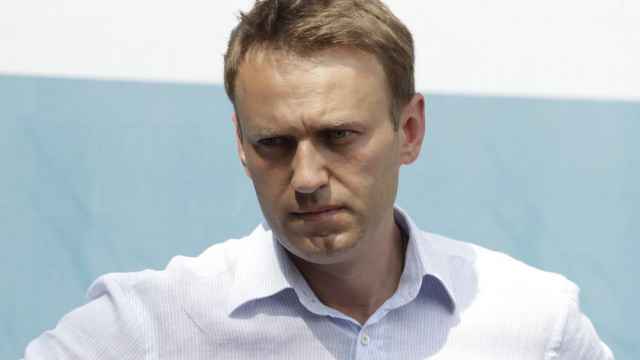AMSTERDAM – Thousands of Russians in more than 100 cities — from Tokyo and Milan to Tel Aviv and Sydney — took part in Sunday demonstrations in support of jailed Kremlin critic Alexei Navalny as he celebrated his third birthday since being imprisoned.
In Amsterdam, hundreds gathered at the Museumplein park in the city center, with activists holding placards saying phrases like “Putin is a killer” and “Free Navalny.”
“I’m here because I feel my responsibility to show my support to Alexei,” protester Ilya told The Moscow Times, adding that he has been supporting Navalny since 2013.
“These demonstrations are an important reminder that Alexei has not been forgotten and there are people with a different political opinion,” Ilya said.
The worldwide rallies come as Navalny, 47, faces up to 30 more years in prison on charges his supporters say are an effort to keep President Vladimir Putin’s most vocal domestic foe locked up for life.
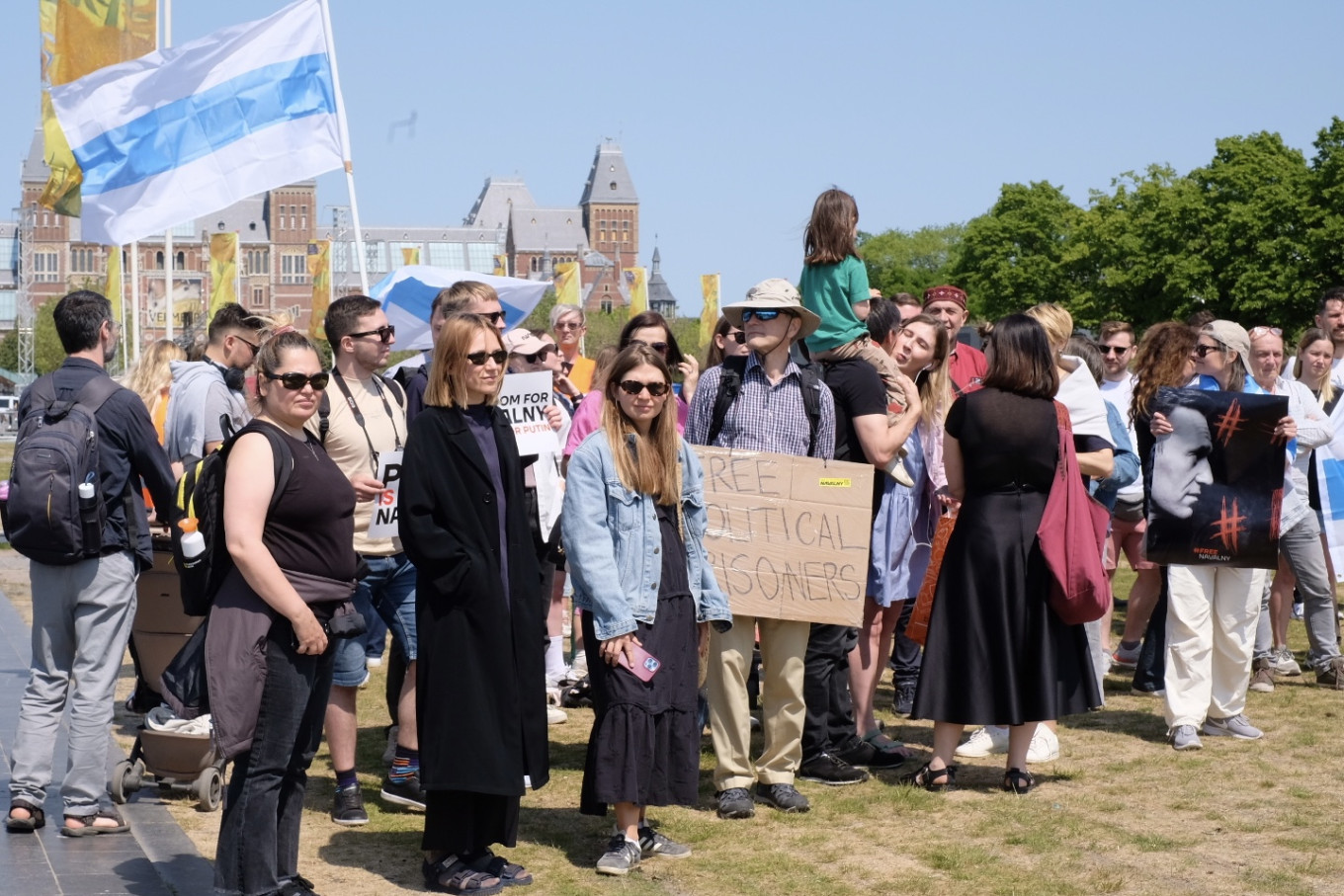
Similar rallies were also held in London, Berlin and Brussels, as well as Yerevan, Armenia and Tbilisi, Georgia — two hubs for Russians who fled their home country following the offensive on Ukraine.
In the Georgian capital, demonstrators were filmed chanting “Freedom to Navalny” and “No to war!”
While Navalny’s team said it expected mostly Russian emigres to show their support for the imprisoned politician, it also called on people inside Russia to take part in the protest, promising to provide legal and financial support for anyone detained for protesting.
Those hoping to protest inside Russia faced acute legal and security risks for doing so.
The Kremlin has overseen a sweeping crackdown on nearly all forms of dissent in the more than 15 months since launching its offensive on Ukraine.
Navalny’s political and activist networks are outlawed in Russia as “extremist” and “undesirable,” meaning that cooperation with these organizations could lead to criminal charges.
At least 113 people were detained across Russia for showing their support for Navalny on Sunday, including 53 people in Moscow and 12 people in St. Petersburg as well as protesters in more far-flung locations such as Barnaul, Yelabuga and the Samara region, the OVD-Info police monitoring group reported.
In Russia's fourth-largest city Yekaterinburg, activists spray-painted the slogan “Freedom to Navalny” on buildings. People also staged pickets in the Siberian city of Novosibirsk, the northern Russian city of Yoshkar-Ola and the southern city of Rostov-on-Don.
The demonstration in Amsterdam, which lasted for around one hour, was also dedicated to other Russian political prisoners and jailed opposition politicians such as Ilya Yashin and Vladimir Kara-Murza.
“I am against the policy of Russia and I am for the release of political prisoners,” said Olga, a Russian activist in her 50s.
“Such protests cannot change the authorities in the country, but it is rather psychological support for those people who are being held hostage in prison and who are suffering for us,” she said.
Navalny, who is now serving a nine-year prison sentence for fraud charges that his supporters dismiss as politically motivated, was arrested upon his arrival at Moscow’s Sheremetyevo Airport in 2021.
He returned to Moscow after recovering in Germany from a near-fatal 2020 poisoning he blames on the Kremlin. Western scientists identified the poison as the banned Soviet-designed nerve agent Novichok, while investigative journalists traced the attack to Russia’s security services. The Kremlin has repeatedly denied involvement.
Russian authorities in April opened as many as 10 new criminal cases against Navalny putting him at risk of seeing 30 more years of jail, according to his team.
His associates have repeatedly warned that his health was deteriorating due to the harsh conditions he faces in prison, including being placed in solitary confinement at least 15 times.
The United Nations as well as dozens of Russian doctors have called on Putin and the Russian government "to stop abusing" Navalny and demanding the opposition politician be given a “full examination” and access to proper medical treatment.
Sending a message to his supporters from prison on Sunday, Navalny said that he believed “telling the truth and upholding justice will become something ordinary and not at all dangerous in Russia.”
“I would like to convey my deepest thanks and greetings today to all political prisoners in Russia, Belarus and other countries. Most of them have a much harder time than me,” Navalny said in a message posted on his Telegram account.
“Their resilience inspires me every day,” Navalny said.
A Message from The Moscow Times:
Dear readers,
We are facing unprecedented challenges. Russia's Prosecutor General's Office has designated The Moscow Times as an "undesirable" organization, criminalizing our work and putting our staff at risk of prosecution. This follows our earlier unjust labeling as a "foreign agent."
These actions are direct attempts to silence independent journalism in Russia. The authorities claim our work "discredits the decisions of the Russian leadership." We see things differently: we strive to provide accurate, unbiased reporting on Russia.
We, the journalists of The Moscow Times, refuse to be silenced. But to continue our work, we need your help.
Your support, no matter how small, makes a world of difference. If you can, please support us monthly starting from just $2. It's quick to set up, and every contribution makes a significant impact.
By supporting The Moscow Times, you're defending open, independent journalism in the face of repression. Thank you for standing with us.
Remind me later.



